- About us
- Support the Gallery
- Venue hire
- Publications
- Research library
- Organisation chart
- Employment
- Contact us
- Make a booking
- Onsite programs
- Online programs
- School visit information
- Learning resources
- Little Darlings
- Professional learning
Tom Uren AC (1921–2015), politician and urban conservation activist, was a strong campaigner on environmental and urban-planning issues and rights for war veterans. Born and raised in the working-class suburb of Balmain, Sydney (where he lived for most of his life), he aspired early to a boxing career. He became active in left-wing politics after the war, during which he was a prisoner of the Japanese. Becoming member for the western Sydney electorate of Reid in 1958, he held the seat until he retired in 1990. He was minister for urban and regional development in the Whitlam government and deputy opposition leader in the Fraser years; in the Hawke government he held several portfolios. Uren’s autobiography, Straight left, was published in 1994.
Clifton Pugh and Tom Uren met at an ALP luncheon at Pugh’s house in the early 1970s, and each responded quickly to the other’s blend of idealism and manliness. Biographer Sally Morrison recalls that the artist called Uren ‘the big hug, the romantic man’. In turn, biographer Traudi Allen writes that as Uren opened an exhibition of Pugh’s in 1974, he said ‘Pugh is so Australian, so giving, so creating, so sharing . . . he’s gentle, he’s lovable, he’s cruel, he’s a great Australian.’ From 1992, when they married, Tom Uren and Christine Logan lived in East Balmain, Sydney, in a house designed for them by architect Richard Leplastrier. This painting hung above their fireplace.
Collection: National Portrait Gallery
Gift of Tom Uren's family 2017
Donated through the Australian Government's Cultural Gifts Program
© Shane Pugh
Christine Logan (1 portrait)



On one level The Companion talks about the most famous and frontline Australians, but on another it tells us about ourselves.
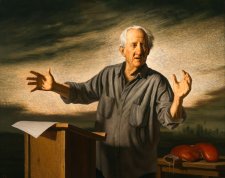
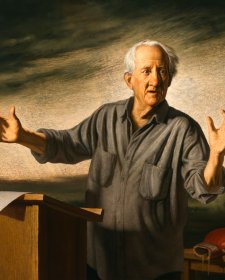
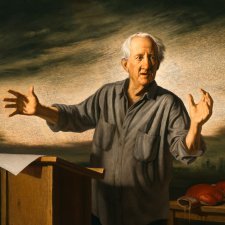
Edward Tom Uren AC (1921-2015), former Deputy Leader of the Australian Labor Party, was a major campaigner on environmental and urban-planning issues and rights for veterans.
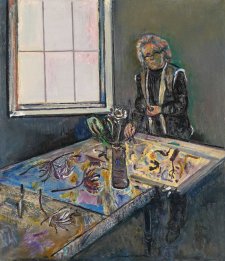
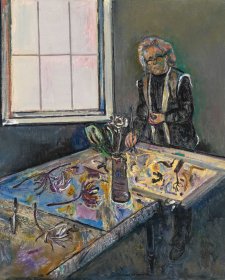
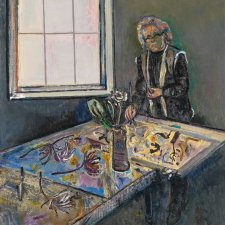
Michael Desmond discusses Fred Williams' portraits of friends, artist Clifton Pugh, David Aspden and writer Stephen Murray-Smith, and the stylistic connections between his portraits and landscapes.